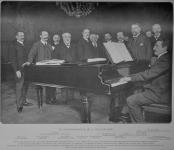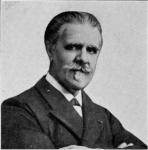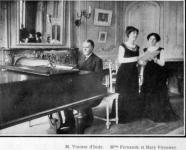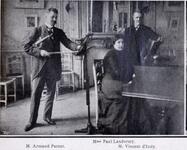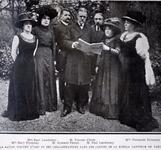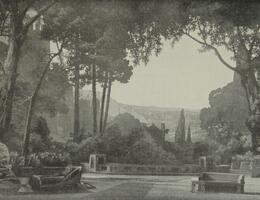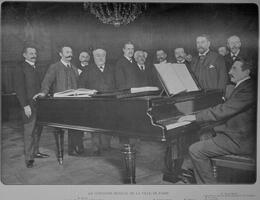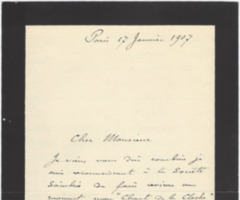
Vincent d' INDY
1851 - 1931
Conductor, Composer
Born into a family of old nobility from the Cévennes region and raised in the Catholic faith, Vincent d’Indy studied piano under Diémer and Marmontel, and harmony under Lavignac. He began reading law, but his discovery of the works of Beethoven, Berlioz and Wagner was decisive in his choice of vocation. After entering the Paris Conservatoire in 1874, he completed his education with Franck, whose heritage he defended passionately, if not dogmatically—his own works often adopted the cyclic principle. A wealthy man, d’Indy could have devoted himself wholly to composition, but instead he waged war on all fronts: as a conductor to defend certain repertoires, as President of the Société Nationale de Musique on Franck’s death in 1890, as founder in 1894 of the Schola Cantorum, where he taught tirelessly, and as the author of some occasionally polemical books. D’Indy dreamt of a truly French music drama, along the lines of the Wagnerian model, and produced his two works Fervaal (1897) and L’Étranger (1903) as a result. He also subscribed to the “regionalist” perspective, advocating the use of folk tunes, as can be seen by his famous Symphonie “cévenole” (Symphony on a French Mountain Air). D’Indy’s prolific output remains little known, even unloved. His post-Romantic spirit and deliberately Germanic style were at variance with the trail blazed by Debussy or Ravel. His works are, however, inspired and display remarkable mastery. There is little doubt, though, that d’Indy’s inflexibility, chauvinism and anti-Semitism have contributed to the general disaffection for his works.
Focus
Focus


